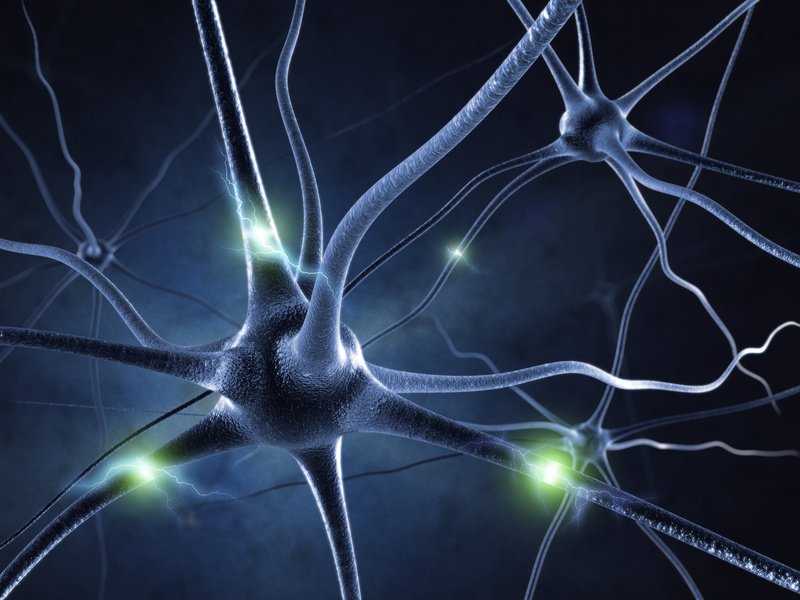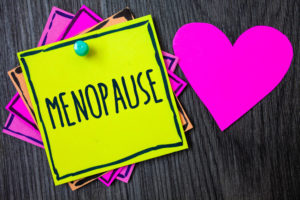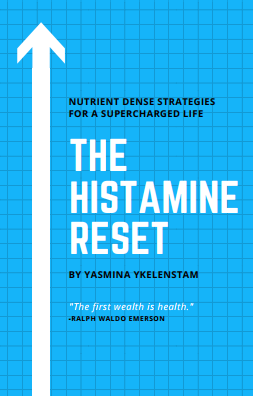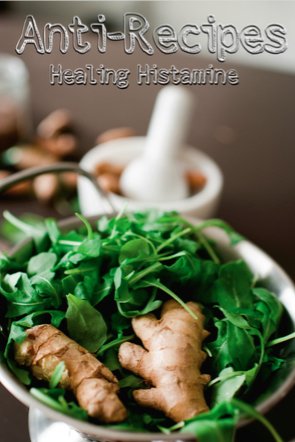
Histamine’s role and impact on brain function and chemistry have been the focus of a fair amount of research in recent years — particularly with regard to CNS disorders and degenerative diseases. Manipulating histamine’s ability to bind to receptors, whether through drugs or diet & lifestyle changes may lessen one’s susceptibility to these diseases and disorders.
HISTAMINE & THE BRAIN
Histamine is known to act as a neurotransmitter in the brain, interacting with and altering levels of other neurotransmitters, such as dopamine, acetylcholine, and serotonin, for example. It has even been said to be a “regulator of whole brain activity,” as it regulates the sleep-wake cycle, hunger and thirst mechanisms, body temperature, blood pressure, pain levels, and even learning and memory. I don’t know about you, but I can relate to issues with a lot of those.
But beyond brain fog, pain, and insomnia, histamine is also being extensively studied for its potential role in more complex CNS disorders and diseases — both psychiatric and neurodegenerative.
HISTAMINE & CENTRAL NERVOUS SYSTEM DISORDERS
Even though past studies never found a direct cause and effect link between histamine and any particular CNS disorder, the fact that the histamine 3 receptor is entirely restricted to the CNS and that histamine has such an effect on other neurotransmitters in the brain led to studies looking for a connection.
And indeed, recent scientific studies indicate that histamine does ultimately play an important role in several CNS disorders. These include sleep disorders such as insomnia and narcolepsy, neurodegenerative diseases such as Parkinson’s disease and Alzheimer’s disease, schizophrenia, and even physical disorders like cerebral ischemia (insufficient blood flow to the brain). Blocking histamine in the brain then has been the focus for a potential remedy.
HISTAMINE RECEPTOR BLOCKERS AS TREATMENT
Histamine in the brain comes only from neurons located within the tuberomammillary nuclei (TMN) in the posterior part of the hypothalamus. These nuclei are involved in arousal and sleep, learning and memory, and energy balance.
So far, pharmaceutical blockers of the histamine 3 receptor have shown potential for treating these disorders of the CNS: Alzheimer’s disease (AD), attention-deficit hyperactivity syndrome (ADHD), schizophrenia, obesity, pain disorders, epilepsy, narcolepsy, and substance abuse/addictions.
These drugs haven’t hit the market yet. And even when they do, I don’t know about you, but I’d rather do what I can to lower inflammation and histamine naturally, with side benefits rather than side effects.
DIET & LIFESTYLE ALTERNATIVES OR COMPLEMENTARY THERAPIES
It stands to reason that if the blockage of histamine receptors in the brain (simulating the lowering of brain histamine levels) leads to a general improvement in multiple disorders of the Central Nervous System, a natural and holistic approach would be to do whatever is necessary to lower one’s overall histamine levels through antihistamine diet and lifestyle choices.
Many dietary strategies for lowering histamine are mentioned on this website, including both what not to eat as well as specific foods, herbs, and nutrients to focus on eating for lowering one’s overall histamine and inflammatory load.
You’ll find recipes full of foods with antihistamine and anti-inflammatory properties my books Anti-Recipes and The Anti-Cookbook. And there’s even a Paleo version here. But if you’re struggling to find foods you can eat, or dealing with multiple sensitivities, you’re probably better off putting together your own healing plan.
CLICK HERE TO CREATE YOUR OWN PERSONALISED HEALING HISTAMINE PLAN.
SUPPLEMENTS TO CONSIDER
Additionally, Dr. Theoharides at Tufts University has done huge amounts of research on the connection between mast cells and brain inflammation. Certain supplements, such as the flavonoid Luteolin can help lower brain inflammation, leading to an improvement in cognitive functioning.
Another supplement to consider is called bacopa monnieri. It comes from the Ayurvedic tradition and has been found to be neuroprotective, with memory-enhancing, histamine-lowering, inflammation-balancing effects.
DON’T OVERLOOK STRESS
And don’t forget the negative effects of stress on the brain. There are plenty of anti-stress practices like meditation, visualization, and yoga to mitigate the effects of stress on the Central Nervous System and subsequently throughout the entire body.
——— REFERENCES ————
Hough, LB. Histamine Actions in the Central Nervous System. In: Siegel GJ, Agranoff BW, Albers RW, et al., editors. Basic Neurochemistry: Molecular, Cellular and Medical Aspects. 6th edition. Philadelphia: Lippincott-Raven; 1999. Available from: https://www.ncbi.nlm.nih.gov/books/NBK28245/
Hu, W., & Chen, Z. (2017). “The roles of histamine and its receptor ligands in central nervous system disorders: An update.” Pharmacology & Therapeutics, 175, 116-132. Retrieved from: https://www.sciencedirect.com/science/article/pii/S0163725817300633
Passani, M. B., et al. “Histamine receptors in the CNS as targets for therapeutic intervention.” Trends in Pharmacological Sciences, 32(4), 242-249. Retrieved from: http://www.cell.com/trends/pharmacological-sciences/fulltext/S0165-6147(11)00004-6
Theoharides, T. C., Stewart, J. M., Hatziagelaki, E., & Kolaitis, G. (2015). “Brain ‘fog,’ inflammation and obesity: key aspects of neuropsychiatric disorders improved by luteolin.” Frontiers in Neuroscience, 9, 225. http://doi.org/10.3389/fnins.2015.00225













